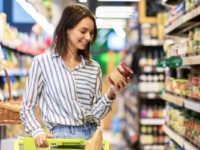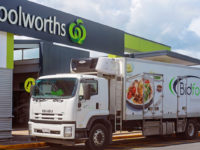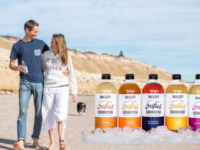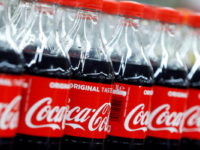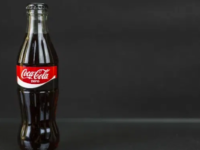
As one of the largest beverage companies in the world, Coca-Cola has been vocal about the need to reduce its environmental footprint.
Early last year, it revealed the extent of its global plastic use for the first time, something only a handful of large FMCG corporations have been willing to admit.
The damage? A staggering 3 million tonnes of plastic packaging each year, the equivalent of 200,000 bottles a minute.
Admitting its position on a global level was an important step in turning things around, and the company is already well on its way to transforming how it manufactures some of the world’s most loved soft drinks.
Its World Without Waste goals for 2030 include achieving 50 per cent recycled content across its packaging, 100 per cent recyclability across its packaging and recycling as many bottles and cans as it sells.
A colossal task by any stretch of the imagination, but nonetheless one that the beverage giant has committed to wholeheartedly.
“It was recognising that there are challenges with waste and recycling locally and globally,” Christine Black, director of sustainability, public affairs and communications at Coca-Cola South Pacific told Inside FMCG.
“The last thing we want to see is our packaging end up where it doesn’t belong in the oceans or landfill.”
As part of a joint commitment with Coca-Cola Amatil, all small packages, 600 ml and under, from brands like Coca-Cola, Sprite, Fanta, Mount Franklin and Pump are now being made from 100 per cent recycled plastic.
“Locally, we’ve made a significant investment in recycled plastic, which I’m very proud of. It means that of Coca-Cola Amatil’s total plastic purchasing, we’re purchasing more recycled plastic than virgin plastic.”
And Australia was the first country in the world to unveil all standard Coke Classic bottles in 100 per cent recycled plastic.
“As the largest drinks company in Australia, we have a responsibility to help solve the packaging problem,” Black said.
“Transparency is hugely important. We want to be communicating our commitments and the delivery on those commitments.”
As part of its global World Without Waste vision, Coca-Cola aims to collect and recycle a bottle or can for every one that is sold by 2030. The beverage giant is working with NGOs and utilising the container deposit scheme to help make this vision a reality.
“We know we’ve got work to do, and we know that it can’t be done by ourselves. We want to play our part with government, with industry, with NGOs and community partners, to come together. We can’t do it alone.”
“Container deposit schemes around the country enable us to track redemption; how many bottles and cans are going through the scheme versus how much we sold. We have a great way of tracking, collecting the bottles, bailing them up, selling them and being able to purchase the recycle plastic.”
Coca-Cola is working with NGOs in the community on initiatives to collect the plastic that is already out there. And it’s not just about collecting its own bottles.
“We’re talking about all bottles and cans, whatever the source. So we work with NGOs on collection and recycling and upcycling of plastics that they find.”
Australians appear to have embraced container deposit schemes so far, with NSW’s Return and Earn having collected over 2 billion containers in the first 19 months.
Alongside its environmental commitments, Black said that broader community goals are an important area of focus for the business.
“As social issues arise Coca-Cola considers its role to play, tied to our fundamental values to care for people and community and anchored in doing business the right way.
“We will always be mindful to be responsive to community needs, but also to make sure that, where it’s necessary for us to act that we are ahead of the curve and being very transparent in our goals and commitments.”
Black said it’s important to continue to educate consumers about their role in building this circular economy.
“We launched a major marketing campaign which thanks Australians for recycling, and builds awareness of our move to recycle plastic, and our commitment to reduce waste. We definitely want to see a strong and viable recycling industry in Australia.”
The TV commercial encourages consumers to recycle every bottle that they use, with the message that, “With a little help, we can make a big change”.
“Making things easy, convenient, and sharing the messages in a very transparent way is important for us,” Black said.
This story first appeared in the October issue of Inside FMCG magazine. The 2020 Outlook issue is out now. Subscribe here.








